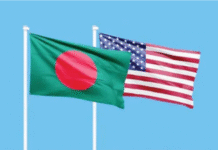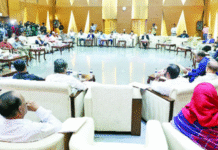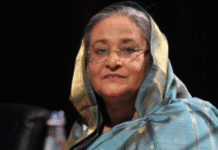As the US aggressively pushes for accountability, human rights, and fair elections in Bangladesh, the silence of the Indian government demonstrates India’s decreasing stature.

Sheikh Hasina, Anthony Blinken and Narendra Modi. Photos: Twitter/@ArifaRahmanRuma, @SecBlinken, and @narendramodi
The sanctions against the RAB were imposed on December 2021, and led to a significant drop in the numbers of enforced disappearances and extrajudicial killings. It also led to rising incendiary statements by the Sheikh Hasina government. On May 13 this year, 10 days after the US said it had informed the Bangladesh government of its new visa policy, but 11 days before it was made public, Hasina lashed out, saying, that the country would not buy anything from countries that imposed sanctions.
But the rather quick results, with the AL now making placatory noises about reaching out to the opposition within two weeks of the public revelation of the new visa policy makes it clear that the US policies are working.
The striking thing about all of this is the silence of the Indian government. The AL, and Shiekh Hasina, have gone out of their way to not upset the Indian government in public. This is in spite of serious provocations, such as the Indian home minister, Amit Shah, using crudely dehumanising language, terming “Bangladeshi migrants” as “termites”.
Even the controversial deal to buy high-priced electricity from Adani power was described by one Bangladeshi analyst in the following terms: “Staying with such companies means keeping government alongside and getting their support.”
The US and Europe had reservations about the election results, but this time it seems it has decided to become more pro-actively involved.
In doing so, not only is the US showing that its interests and those of India’s do not exactly align in India’s neighbourhood, but that it is willing to actively insert itself in the region.
We have no idea if India was informed or consulted in any manner. If it was not, that would mean the US sees India as an incidental power in South Asia, and maybe even a barrier to the furtherance of free and fair elections. If the Indian government was informed and consulted, and has kept mum, on both the sanctions on RAB and the new visa policy, it suggests that the government considers itself a secondary actor in its own neighbourhood.
Omair Ahmad is an author and journalist.











Your story is intelligently anti-AL and anti-India. India in its own interest supports AL, same is true for Bangladesh also. USA under Biden administration is weak. Well Bangladesh doesn’t have a good election system and most OIC doesn’t have that either! Sheik Hasina government needs to give more attention to its Minority population, so that the Islamists cannot use that in their favor and as well as curb the Islamic terrorism. Her government was sincere all along with India about seven sisters. As long as Bangladesh and India walks in the same direction, I think USA will ultimately listen to India for its greater interest.